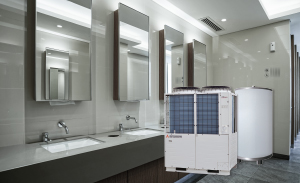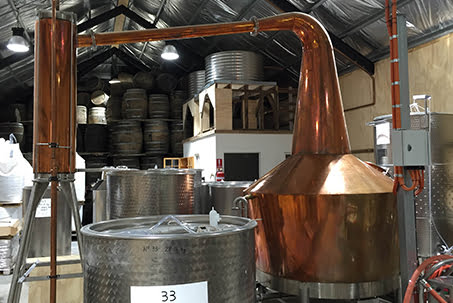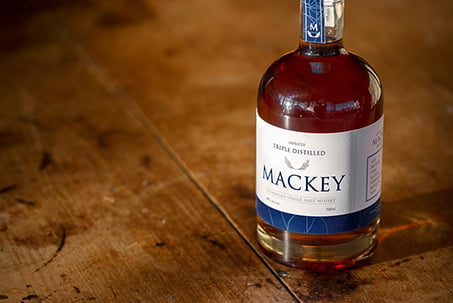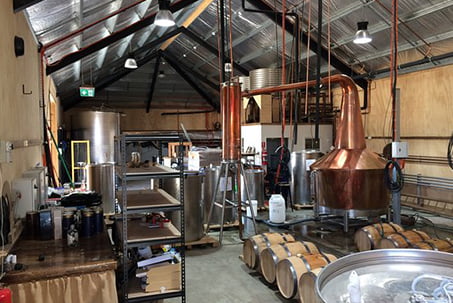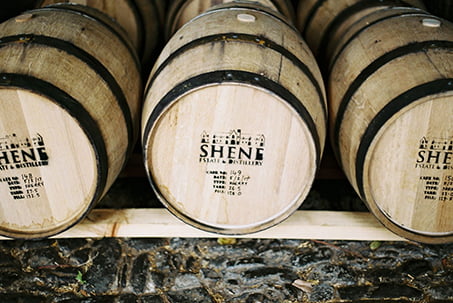SHENE ESTATE DISTILLERY, TAS
PROJECT DESCRIPTION
Located in Pontville, Tasmania, the over 200 year old Shene Estate and Distillery has been using locally sourced ingredients and traditional methods to produce some of Australia’s best gin and single malt whiskeys. The distillery’s world famous Poltergeist Gin was awarded a Double Gold medal at both the 2017 and 2018 San Francisco International Spirits Competition and a Gold Medal and the World Gin Awards in 2017, making it one of Tasmania’s most celebrated gins.
PROJECT REQUIREMENTS & CHALLENGES
To produce the award winning gin and single malt whiskey, the distillery uses traditional distilling methods which utilises hot water to heat the barley mash. Each day 6,000 litres of hot water is required, initially at 90°C, with the temperature then reduced to between 64°C and 65°C, the optimum temperature to dissolve sugars contained within the starch of malted barley. Finally, towards the end of the process the temperature is brought back up to 70°C to dissolve enzymes within the mash.
Given the growing production output of the distillery, these traditional methods have resulted in a huge amount of water being used each day. Conventionally, the water used in the above process is heated using an instantaneous electric hot water heater however, with ever increasing electricity prices, this was becoming expensive and unsustainable for the business. While the alternative of gas was originally considered, given the estate is not connected to any gas grid, this was ruled out and an alternative and more energy efficient hot water solution that could operate in the low outdoor temperatures was required.
MHI’S SOLUTION
After speaking with our technical sales department and after taking into consideration the distillery’s daily water volume and temperature requirements as well as the colder temperatures the distillery would experience in winter, it was agreed that Mitsubishi Heavy Industries’ Q-ton, CO2 air-to-water hot water solution would be perfect for the application.
The Q-ton is an industry leading air to water heat pump that utilises CO2 as a natural refrigerant to deliver a reliable and highly efficient hot water solution in even the coldest environments. The Q-ton heat pump draws air through an evaporator containing CO2 refrigerant, which absorbs the heat in the air. The two-stage compressor then compresses the refrigerant under high pressure to raise its temperature, while an on-board heat exchanger uses heat from the refrigerant to generate hot water, which is then stored in tanks. The Q-ton can deliver great performance at low outdoor temperatures down to -25°C, making it perfect for the colder climates of Tasmania and allowing it to deliver accurate, set point heated water, all year round.
Achieving an industry leading COP (coefficient of performance) of 4.3 by delivering 30kW of output power from only 7 kW input¹, the Q-ton is much more efficient than the distillery’s existing water heater which was only achieving a COP of 1, delivering 48 kW output from 48 kW input. As a result of being more energy efficient, the Q-ton is much cheaper to run; delivering huge reductions in running costs, with the distillery anticipated to save 60% per year on their energy bills compared to an instantaneous heater. In addition to this, the Q-ton’s remote-control scheduling functions allows it to produce hot water during off peak electricity periods and store this in tanks for later use, offering even further cost savings.
Consuming 76% less energy than an electric line heater and 46% less energy than a gas boiler, the Q-ton generates 74% less CO2 emissions (47 tonnes) than an electric heater and 48% less emissions (23 tonnes) than a gas boiler, making it much more environmentally friendly².
The Q-ton can be configured as a stand-alone unit or operate with up to 16 units in modular configuration, providing 3,000 to 100,000 litres of sanitary hot water daily and can be easily controlled from the simple touch screen control panel. This enables programmability and flexible operation not possible with a conventional hot water system such as an electric line heater. By working closely with the owners of the Shene Estate, MHIAA was able to deliver a reliable hot water solution that will significantly reduce the operation’s energy costs and deliver reliable hot water, even throughout Tasmania’s chilly winters.
¹Intermediate season Air on at 16°C, Water on at 17°C, Water off at 65°C. ²Operation conditions: senior care home, 80 persons, 8000L/day,60°C conversion. The above figures have not been issued from a real site and should be considered as an indication only.






